Wildlife Violations
Hunting Violations in Colorado
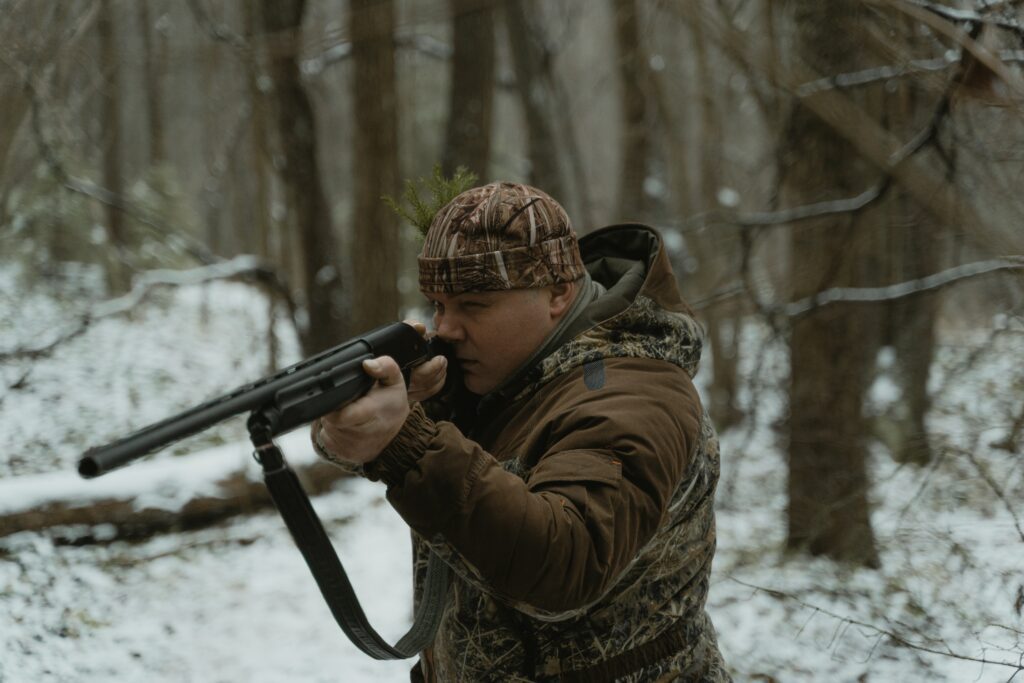

When you are hunting in Colorado, your compliance is required with many wildlife laws. These regulations exist to promote safety and to protect a valuable resource – our state’s wildlife. Officers issue hundreds of tickets every year for hunting law violations. Many of these costly citations could have been avoided if hunters were familiar with state wildlife regulations.
CPW Expands Wolf Hazing Rules for Ranchers
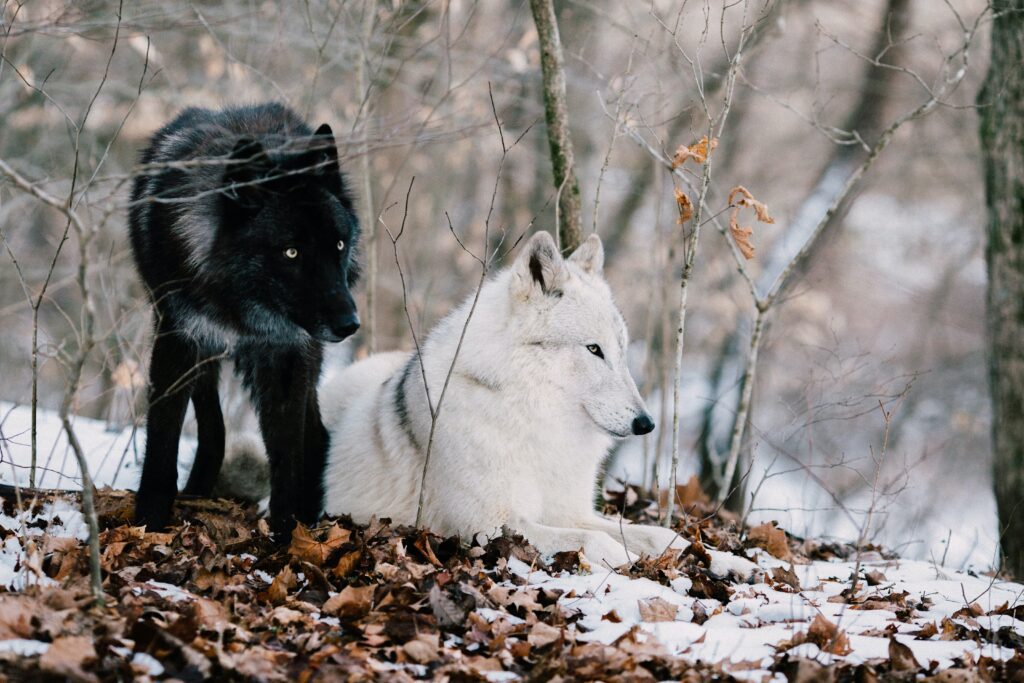

In Colorado, ranchers have a long history of working to eliminate wolves. In 1869 Colorado was the first Rocky Mountain state to enact a bounty on wolves. By the end of the 1940s, there were no more wolves left in Colorado. That changed when a small pack of wolves migrated into the northwestern corner of the state in 2020.
Help Stop Poaching in Colorado
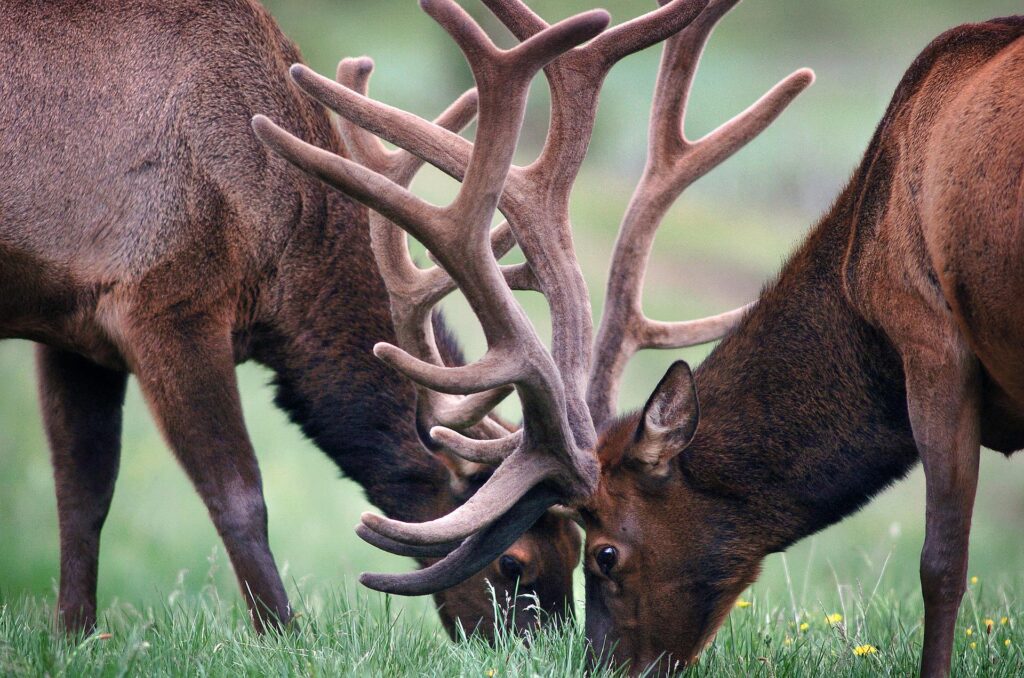

Poaching is a crime that inflicts a terrible toll on our wildlife, disrupting the natural environment. Although you may think of a poacher as someone who is trying to feed their family, this is rarely the case. In many instances, poachers are part of organized criminal conspiracies where rare animals are being killed for profit and their carcasses are left to rot in the sun. Colorado needs your help to protect our majestic wildlife.
How Drone Operators Violate Wildlife Laws in Colorado


Drones can be a lot of fun. Recent improvements in technology have greatly increase their range and they have also become very affordable for hobbyists. But there are strict state and federal prohibitions about where you can use drones when wildlife is present.
How Pet Owners Can Avoid Wildlife Violations in Colorado
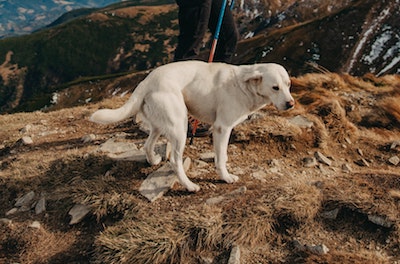

Although there are several recreation areas in Colorado where dogs are allowed to run free, Colorado Parks and Wildlife (CPW) strongly recommends keeping pets on a leash whenever there is a chance they may encounter wildlife. This is advisable to protect your pets from predators and also to protect wildlife such as deer and elk from being injured or killed by dogs.
As a dog owner, you may be fined if your dog harasses, injures, or kills a wild animal. If you enjoy exploring the natural beauty of Colorado with your pet, it’s important to know how these wildlife laws are enforced.
Title 18 May Affect Your Privilege to Hunt and Fish
Did you know some criminal convictions under Colorado’s Criminal code codified in Title 18 may affect your privilege to hunt and fish? Don’t get caught in that trap!
Within Colorado’s Parks and Wildlife code codified in Title 33, there is a specific provision that provides for a person who has been convicted of any violation of title 18, C.R.S., that was committed while hunting, trapping, fishing, or engaging in a related activity that would total 20 or more points against the license, to trigger suspension proceedings with the Colorado Parks and Wildlife Commission.
Don’t become a target. Contact Welsh Law, LLC attorney Jennifer Hayden to advise you of collateral consequences regarding your privilege to hunt and fish.
Reality-TV’s Billy Buspice Loses Hunting Privileges until 2019 for Poaching
Billy Buspice, co-host of the reality-TV show “Wildgame Nation” and star of A&E’s upcoming series “Country Buck$,” had his hunting and fishing privileges revoked this week until 2019 by a Louisiana Circuit Court judge as part of his sentencing for charges of allowing an antlerless elk to go to waste and hunting without a license. Buspice will also be placed on supervised probation for a year-and-a-half and pay $23,000 in fines and restitution.
On October 16 of last year, hunters witnessed an individual filming a man on Buspice’s property shooting a calf and a bull elk. According to the hunters, the men examined the two carcasses, which were approximately sixty yards apart, and then departed without them. A man later returned to retrieve the bull elk, the hunters said, but left the calf carcass in the field.
The shooter was Buspice, who eventually stated that he had accidentally hit the calf while aiming for the elk. He also admitted to later instructing two individuals to hide the abandoned carcass in a drainage ditch.
The charges are not Buspice’s first. He received a citation earlier in 2016 for purchasing a resident elk license as a non-resident, and he’s also been cited for purchasing deer licensees beyond the authorized number permitted. In addition, Busbice is being sued in civil court by a hunter who was arrested in 2013 for killing a deer on Busbice’s property without permission.
As a result of the charges, Buspice is now banned from hunting in at least forty-five states until 2019, including his home state of Louisiana. Furthermore, violating his probation terms by hunting without a license could result in an additional six months of jail time.
Many hunters remain unaware that a license suspension or revocation in one state can transfer to nearly all of them. In addition, it can be difficult to remain up-to-date on changes in local, state, and federal hunting and fishing regulations each year – which means that many of the 15.4 million license holders nationwide may be unintentionally violating any number of laws.
If you’re planning a hunting or fishing trip – or if you’ve received a citation or been charged with a violation – knowing what your rights are can be crucial in keeping your license and privileges. Our office can help you ensure that you’re enjoying the outdoors – and that you’re doing so in full compliance with the law.
Charles Feldmann, a lifelong outdoorsman, leads the firm’s wildlife practice group. Contact him at WildlifeAttorneys.com for a free consultation regarding your wildlife legal matter.
Importance of Seeking Legal Counsel After an Accusation of a Hunting Violation
Colorado is a state that takes wildlife seriously. The state has many laws regarding conduct outlined in its official statutes. Specifically, the legislation in the Wildlife and Parks and Outdoor Recreation laws, Article 6 describes the general provisions of what is considered a punishable offense.
In total, these statutes define what prosecutors and state officials regard as violations for improperly taking wildlife, carrying the wrong hunting provisions, and using computer-assisted remote hunting. They also describe the extent of punishment you could face if you are accused of violating one of these hunting laws.
According to §33-6-103, if you are caught and convicted of violating any hunting statutes, each violation shall “extend to and include every part of such wildlife, and a violation as to each animal or part thereof shall be a separate offense.” Two or more offenses could be charged in the same complaint, information, or indictment, and any proof as to part of an animal is sufficient to sustain a charge as if you had the whole animal. If convicted, you could also face hefty fines and a suspension of your license privileges.
If hunting is what you love, don’t take risks regarding your ability to continue doing it. You need an experienced Colorado wildlife defense attorney to defend your rights and your hunting privileges. Our lawyers’ first-hand hunting experience allows them to provide our clients with nuanced legal representation. We understand what you are going through, and we have assisted many hunters with various legal issues, such as Federal Lacy Act Violations, trespassing charges, and hunting without a permit. Whether you want to prepare for hunting season or have encountered an issue during hunting season, we can help. Let us take care of all the details and create a strategy that is custom-made for your defense.
Contact us at (720) 836-1777 or fill out our online form to schedule your free case evaluation today.
Checkpoint Ahead – You better CHECK YOUR WILDLIFE because law enforcement is!
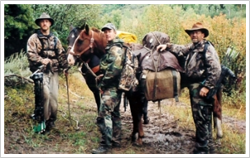

Is that a DUI sobriety check ahead? Nope that is a Wildlife Checkpoint!
Colorado Parks and Wildlife, is conducting one of the largest wildlife check stations in the state’s history. The CPW has set up a checkpoint near Idaho Springs and with the assistance of over 200 law enforcement officers from eight separate agencies in three states are operating around-the-clock fish and game checkpoint. This is only one checkpoint, but don’t be surprised when these checkpoints become the norm in the future.
Colorado law states: “The division is authorized to establish check stations…Persons who encounter check stations, whether in possession of wildlife or not, shall stop and produce licenses issued by the division, firearms, and wildlife for inspection by division personnel. Any person who violates this section is guilty of a misdemeanor …”
If you get stopped and checked you better know your rights, because anything you say to the law enforcement officers “can and will be used against you”.
Colorado hunting laws also state that “Any person who hunts…, or possesses wildlife for any purpose shall produce all applicable licenses issued to him by the division, all firearms, all records required to be maintained …, and any personal identification documents when requested to do so by a district wildlife manager or another peace officer.
What are your rights as a hunter if stopped and questioned at one of these new hunting checkpoints? Contact an attorney at Wildlife Lawyers immediately to understand all of your rights as a Colorado outdoorsman.
You should always be polite, courteous, and cooperate within the bounds of your rights when interacting with a wildlife officer or peace officer. But if they start to ask you questions or interrogate you remember you have a right to remain silent and you have a right to an attorney. Know your rights ahead of time. Wildlife officers do not have to advise you of your rights if you are not in custody (i.e. a checkpoint). As a hunter you must educate yourself with the appropriate rules and regulations regarding hunting in Colorado. You must educate yourself with what you must produce when asked and what you do not have to produce when asked at a checkpoint.
The general rule is that a checkpoint is not the place to “come clean” with potential wildlife violations (crimes) you committed regardless if the officer says it will be better for you to tell them what happened. Wildlife officers are also criminal investigators. They are investigating potential wildlife crimes and anything you tell them may just help prove their case against you.
Officers may claim that things will go easier on you if you just come clean, but the reality is they will use what you say (admission) to prepare a case against you and you will be charged with a wildlife crime. Yes, wildlife tickets are crimes! Remember if you are convicted of a wildlife offense you likely will have a criminal conviction on your record, and you will have to pay hundreds if not thousands of dollars in fines and costs, and you could lose your hunting privileges. Under Colorado law, depending on what you are convicted of, you could lose your hunting privileges for anywhere from 1 year to a lifetime suspension (to include being suspended in the interstate wildlife compact states – 32 other states).
WildlifeLawyers.com has been representing big game hunters and fishermen throughout Colorado for over a decade. Our attorneys are former wildlife prosecutors, judges, and federal and state criminal defenders. Call our attorneys at 800-817-1106 for a free consultation today if you have any questions about your rights in the field.
Get off the Hook and Have Your Hunting and Fishing Rights Reinstated with a Strong Appeal


In August 2012, state Rep. Jon Becker’s House Bill 1330 was signed into law creating an appeals process for Coloradans with suspended hunting or fishing licenses. This law gives hunters and anglers in Colorado a hearing and an appeals process for suspended licenses and allows a way and means for these individuals to continue to pursue their passion.
The Wildlife Attorneys at Welsh Law, LLC work with many clients to reinstate fishing and hunting rights in Colorado, and specifically between Julia Stancil and myself, we have handled hundreds of wildlife cases throughout the county. For example, in December of 2014, Wildlife Attorney Julia Stancil went before the Colorado Parks and Wildlife Commission to petition for a reinstatement of her client’s rights to hunt and fish in Colorado and all other states within the Interstate Wildlife Compact. Her client had received a decades-long suspension of hunting and fishing privileges after accumulating a series of tickets as a youth. The time limit to appeal such a suspension is thirty (30) days following an administrative decision, but unfortunately, the client had not retained legal counsel at the time and did not appeal. Without the right to appeal the decision, Ms. Stancil filed a Petition for Declaratory Order. This is essentially a petition for equitable relief that was based upon an argument that the client should not have received such a lengthy suspension based upon the statutes violated at the time. This unique argument prevailed and Ms. Stancil’s client immediately had their rights reinstated.
In the alternative, we also work to avoid the suspension altogether. Recently, I represented a client who was facing both federal and state charges for illegal possession of wildlife, with a potential of 35pts against the client’s hunting privileges. After our investigation and multiple plea discussions, I was able to negotiate a plea deal in which the state agreed not to pursue state charges, and to include a $10,000.00 Sampson charge. The federal prosecutors agreed to dismiss one of the two federal charges, which would limit the violation to 15pts, thereby avoiding the suspension hearing altogether and allowing our client to retain his privilege to hunt.
An appeal to the Commission is a difficult and challenging process that requires competent and knowledgeable representation. Here are three tips for you to build a strong case to get your rights reinstated:
- Hire legal counsel to create an appellate battle plan. This is not the time for you to represent yourself in court: join forces with a reputable law firm and begin preparing your appellate battle plan. Your legal representatives will start by preparing a thorough written analysis of the legal theories at issue in your case, which will include the elements of each cause of action and defense you plan to allege and of those you anticipate your opponent will raise.
- Begin building the record. If it’s not in the record, it didn’t happen. There is nothing more important to an appeal than ensuring that there is an adequate record to present to the appellate board. The hearing record, written and documentary evidence, along with certain mitigating documents are what the commission uses when considering the appeal. A transcript of the hearing is mandatory. Our wildlife attorneys utilize Transcription Outsourcing, LLC to record accurate transcripts of witness interviews and appeal hearings regarding cases on hunting privileges. These transcripts result in a much stronger case to present to the Colorado Parks and Wildlife Commission.
- Make good objections and get a ruling. Here are the worst words you can hear from an appellate court or commission: “Great argument; not preserved.” To preserve the issue for appeal, you need to raise an objection, seek a remedy and secure a ruling. Make sure the trial record accurately reflects timely, meaningful objections, made on clearly stated grounds and is followed by a ruling by the court (or a clear request to rule).
If you have received a summons for a wildlife violation or have been given a notice of a hearing by the Division of Parks and Wildlife, contact the experienced Wildlife Attorneys at Welsh Law, LLC for a consultation. One of our attorneys can advise you, represent you for your wildlife violation at the court level both state and federal, argue the case at the hearing level to attempt to prevent or mitigate a suspension, and can also appeal a decision that is made by the hearings examiner.
